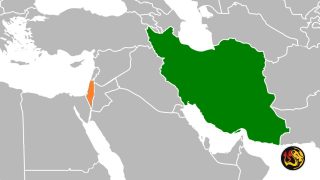
By Worthy News’ George Whitten and Stefan J. Bos
TEHRAN (Worthy News) – Iran suggested Saturday it would attack Israel after a deadly strike in Syria killed several members of Iran’s elite Revolutionary Guards.
“Iran … reserves its right to respond to the organized terrorism of the fake Zionist regime at the appropriate time and place,” the foreign ministry spokesperson, Nasser Kanaani, told state media.
He condemned the killing of at least four members of Iran’s Islamic Revolutionary Guard Corps (IRGC) in Syria’s capital, Damascus, on Saturday as a “desperate attempt to spread instability in the region.”
Tehran was quick to blame Israel for the attack, but there was no immediate comment from Israel’s government.
However, the strike came shortly after Israeli Prime Minister Benjamin Netanyahu suggested Israel is attacking Iran, apparently on several fronts.
COMMANDERS IN YEMEN
Kanaani also condemned “frequent violations of Syria’s sovereignty and territorial integrity and an escalation in aggressive and provocative attacks” by Israel.
The rising Israel-Iran tensions came as news emerged that several Iran-backed groups, including the IRGC, are coordinating with Houthis in Yemen to attack ships in the Red Sea.
Iran’s IRGC commanders and Lebanon’s Hezbollah group are on the ground in Yemen, helping to direct and oversee Houthi attacks on Red Sea shipping, several security sources said.
Iran – which has armed, trained, and funded the Houthis – stepped up its weapons supplies to the militia as a result of the war in Gaza.
The war erupted after Iranian-backed fighters of Hamas attacked Israel on October 7, killing at least 1,200 people in the worst atrocity on Israeli soil since the current state of Israel’s foundation over 75 years ago.
Copyright 1999-2026 Worthy News. This article was originally published on Worthy News and was reproduced with permission.
Latest News from Worthy News
Saudi Arabia has launched the largest reconstruction initiative in Syria since U.S. sanctions were lifted, positioning the kingdom as a central driver of Syria’s postwar recovery.
Ukrainian President Volodymyr Zelenskyy said the United States has given Kyiv and Moscow another deadline to reach a peace agreement, proposing that the nearly four-year war should end by June, as Russia escalates air strikes against Ukraine’s energy infrastructure.
Israeli Prime Minister Benjamin Netanyahu is scheduled to meet Wednesday with President Donald Trump at the White House, as negotiations with Iran enter a decisive and potentially volatile phase. The meeting, set for 11:00 a.m. Washington time, will mark Netanyahu’s seventh face-to-face encounter with Trump since the U.S. president began his second term, underscoring the unusually close relationship between the two leaders.
With the deadline to fund the Department of Homeland Security only days away, Democrats have refused an offer from the White House to strike a compromise over Immigrations and Customs Enforcement changes.
President Donald Trump is weighing deploying a second aircraft carrier to the Middle East as the U.S. continues talks with Iran over its nuclear program.
Ahead of the 2026 midterm elections, Republicans in Congress are pushing forward multiple bills that would standardize election security requirements nationwide.
Kenya has condemned as “unacceptable” the recruitment of its citizens to fight for Russia in Ukraine, amid reports that several Kenyans have been killed or wounded on the battlefield as the war approaches its fourth anniversary.







